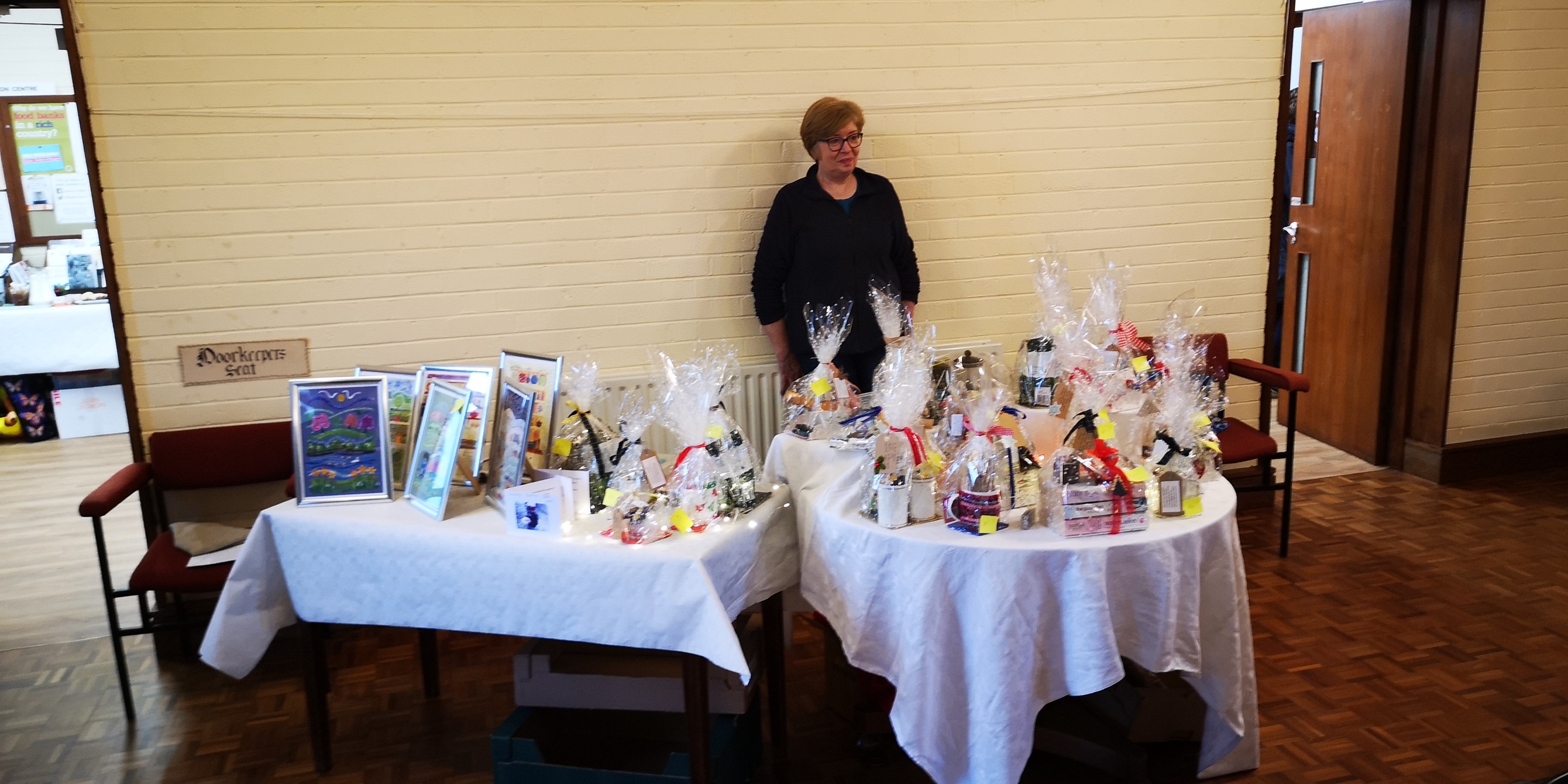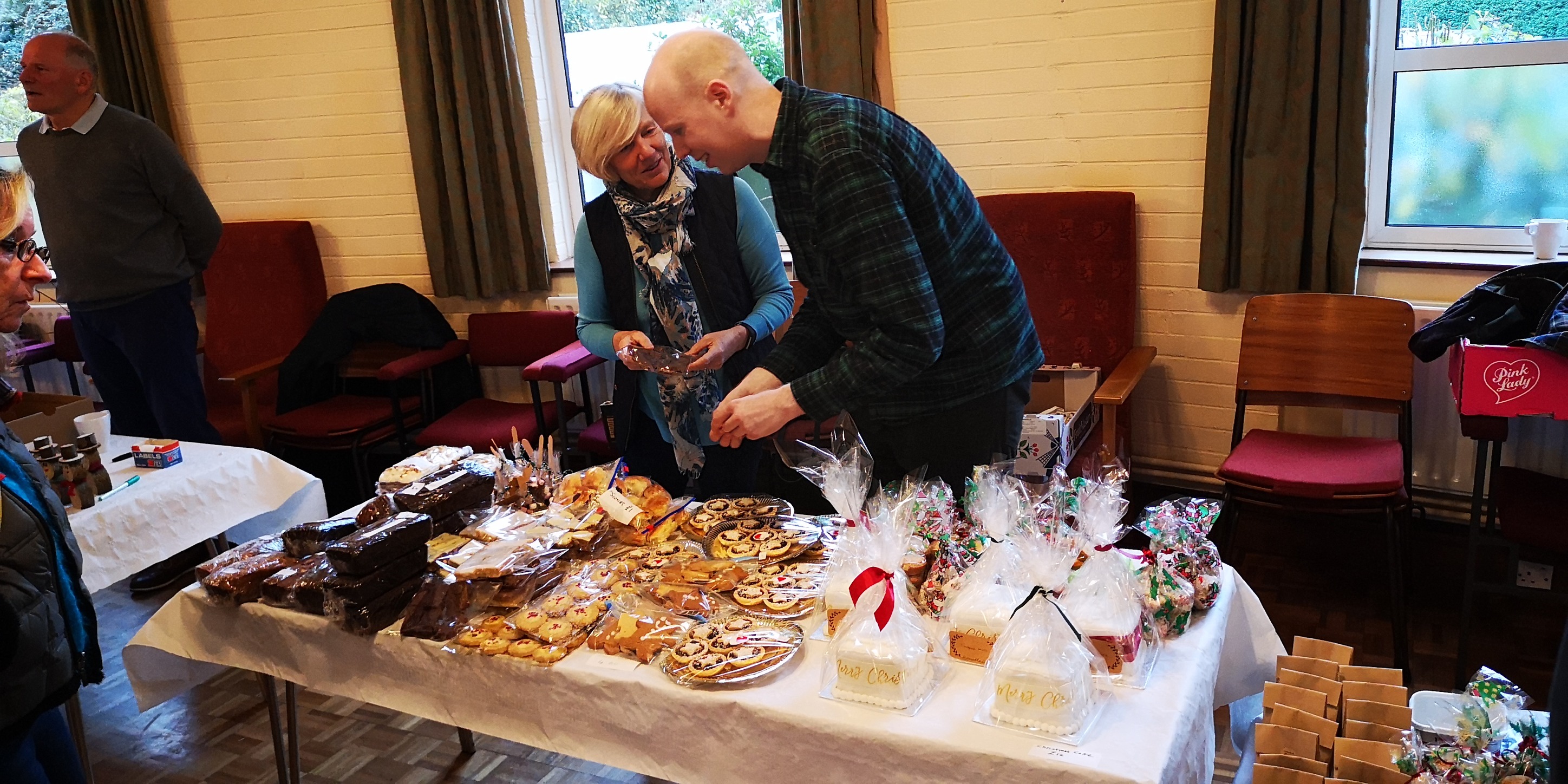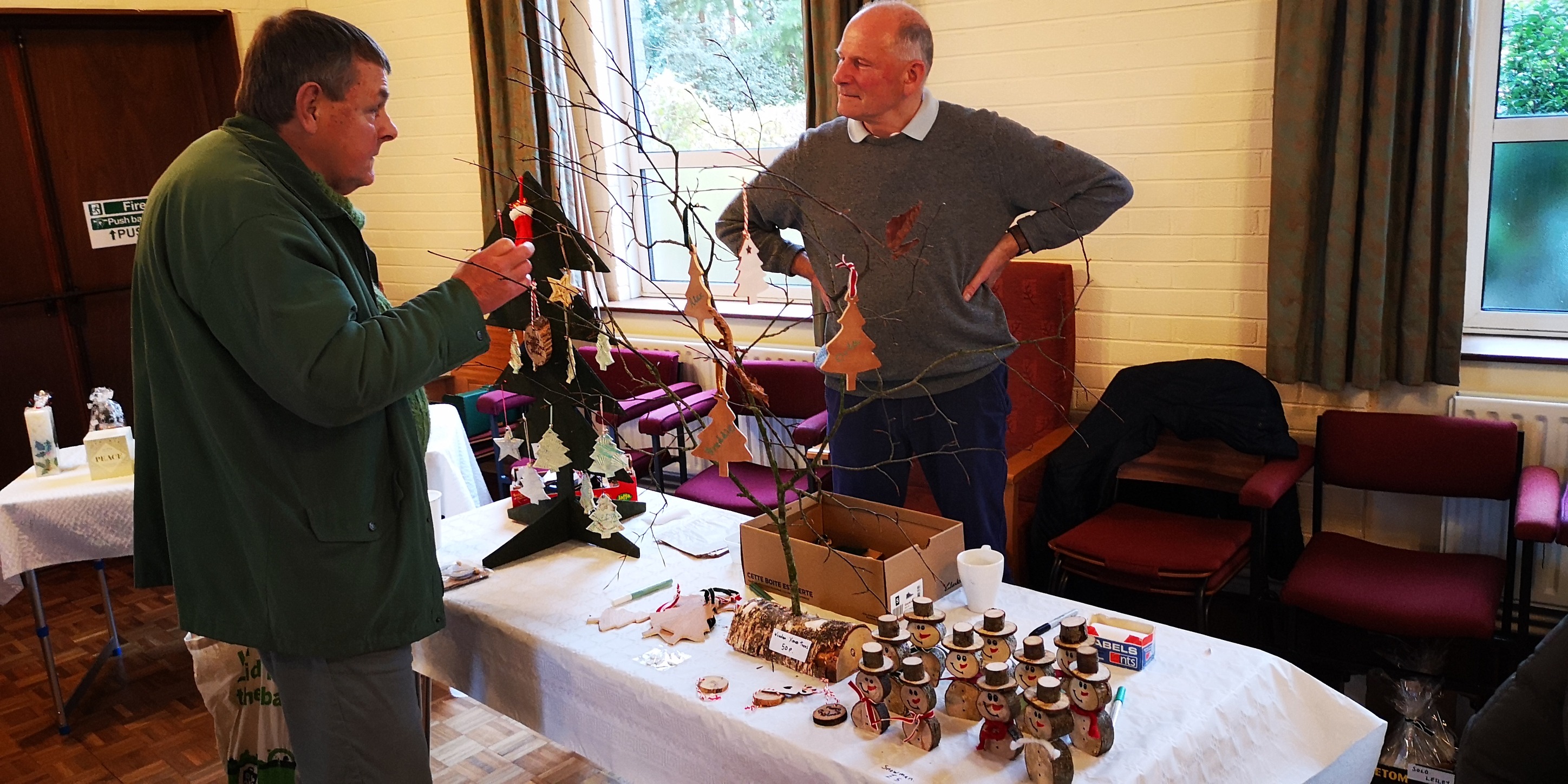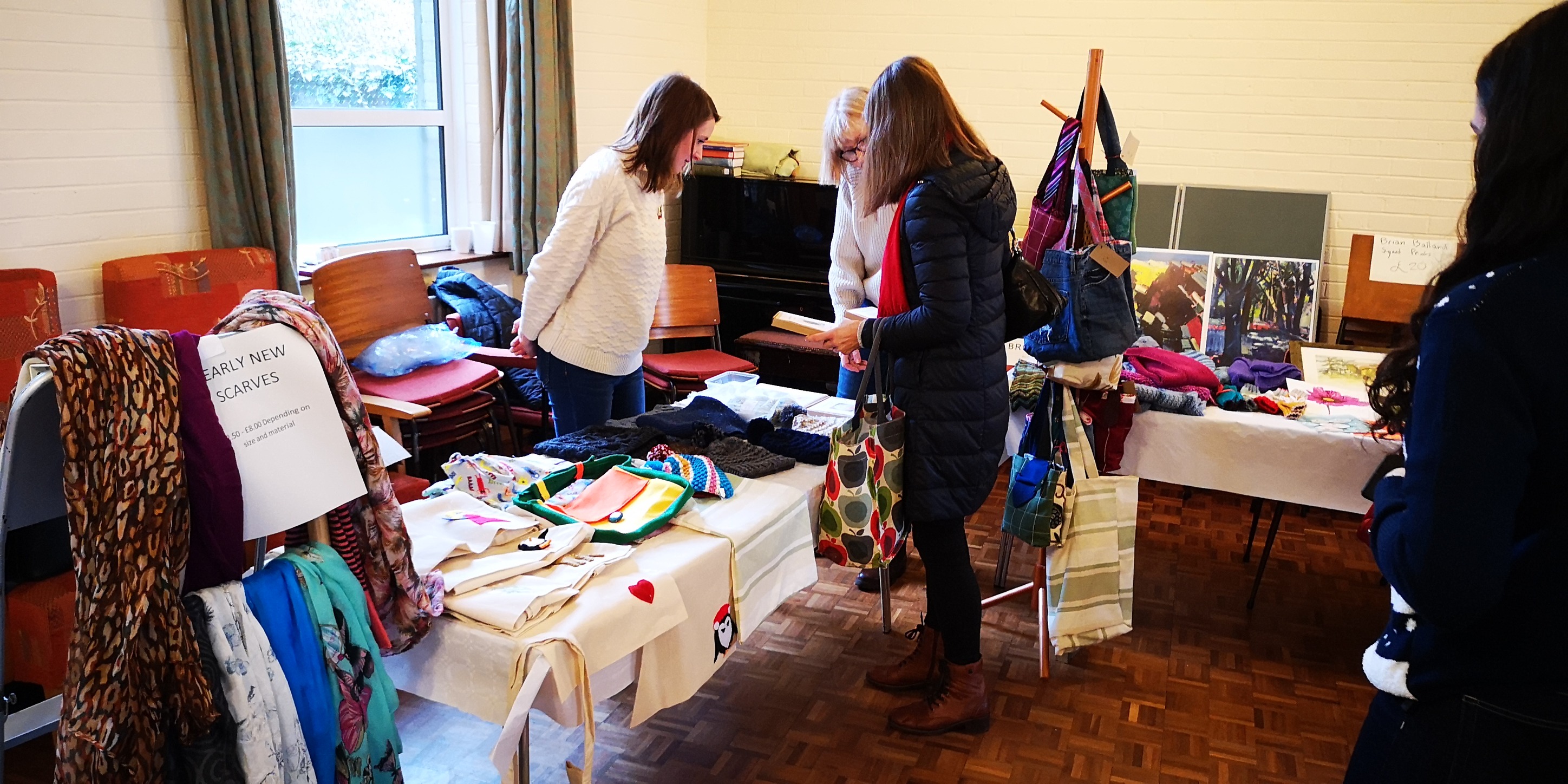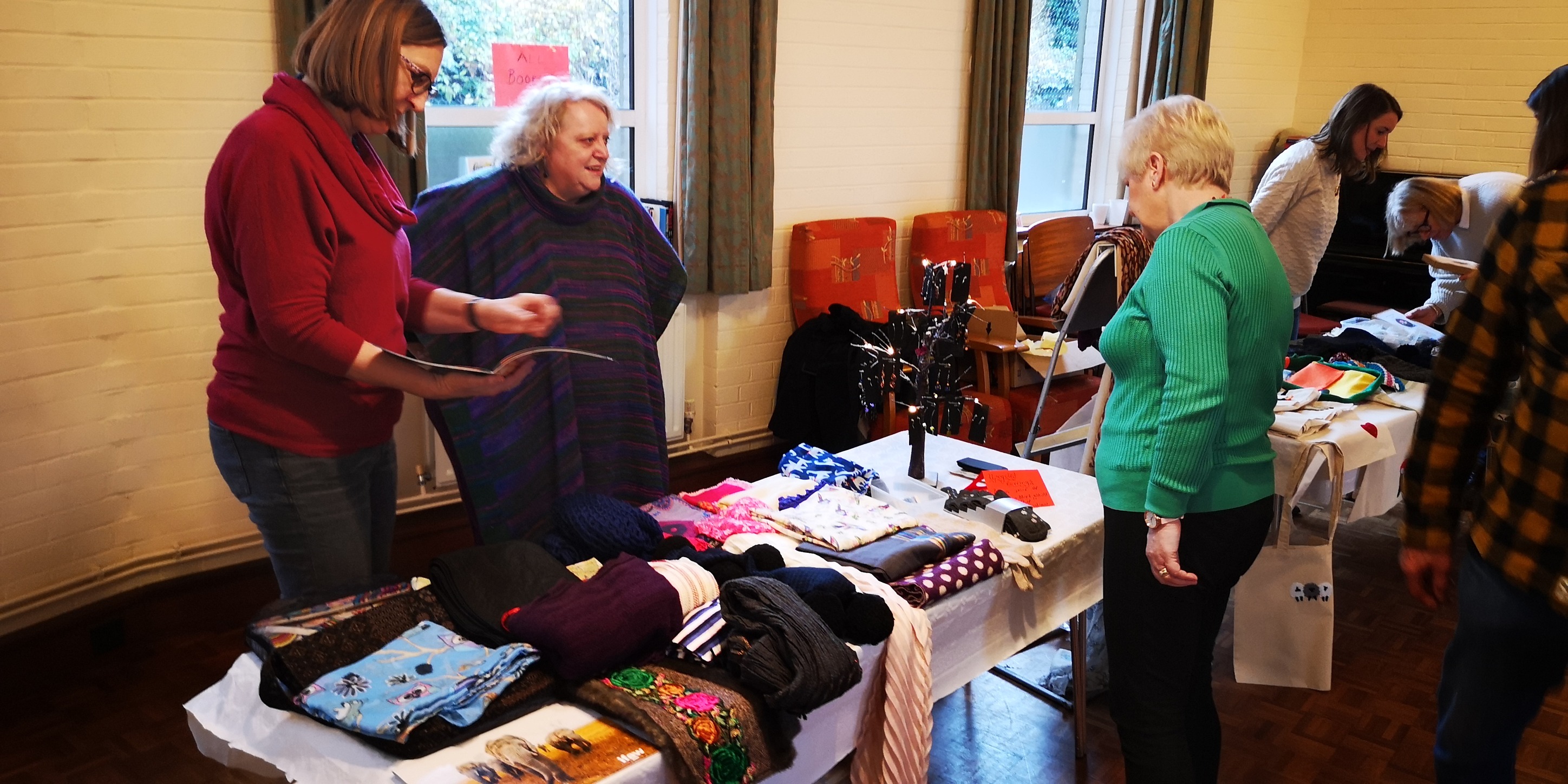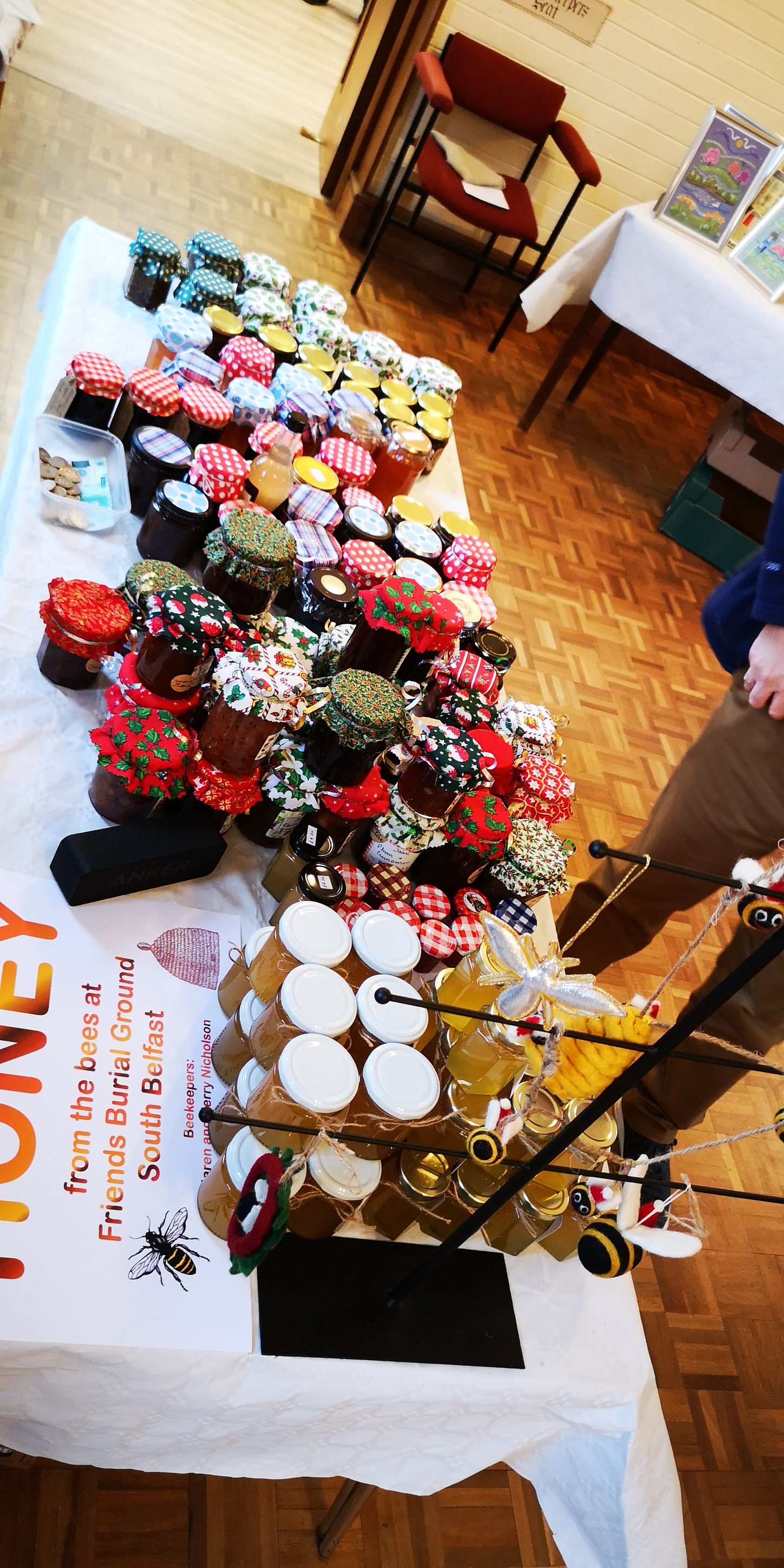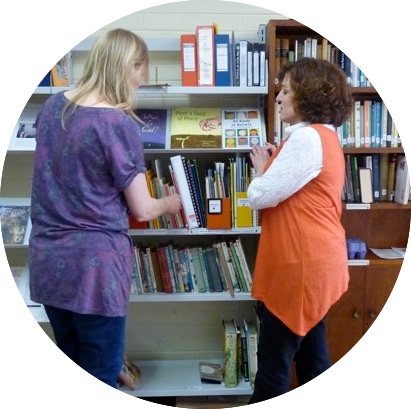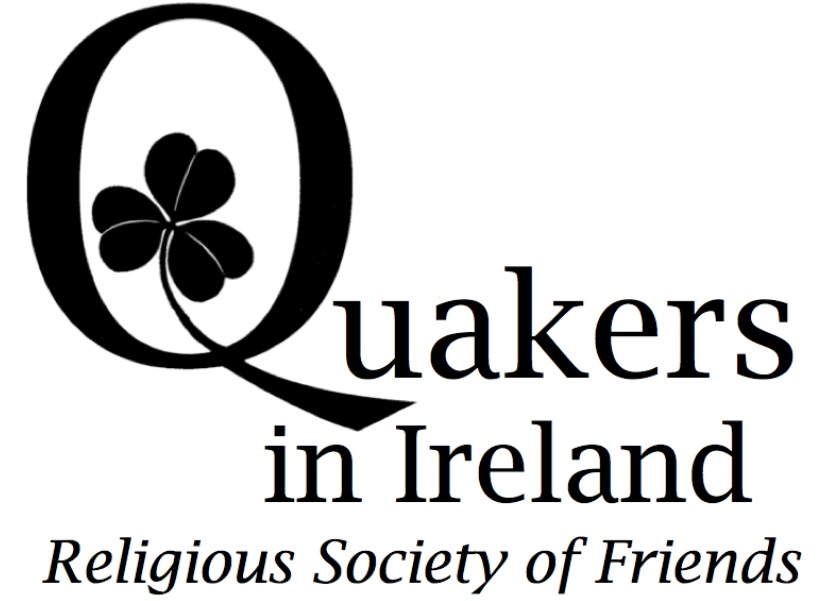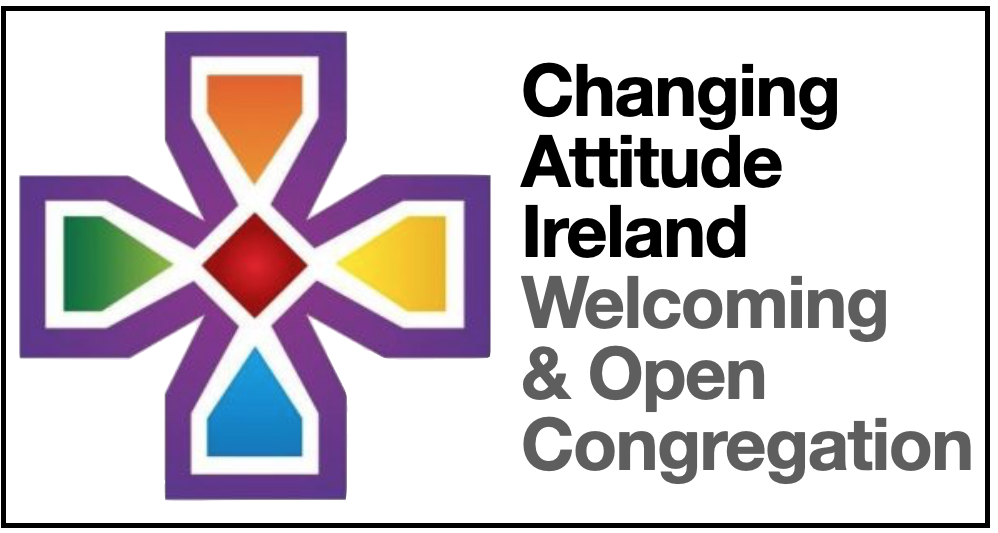December 2022
THE PEACE TESTIMONY - AFTER MEETING CONVERSATION
12/12/22 22:20 Filed in: Peace
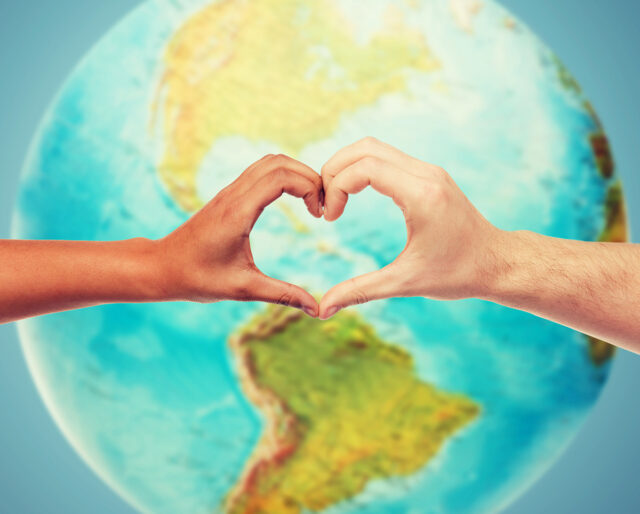
After Meeting for Worship on Sunday 11th December 2022, a group of Friends met to consider the Quaker Peace Testimony. To stimulate discussion, the session began with a conversation between Will Haire and Honor Stewart (for the full text see attached file) We wondered if the testimony was articulated clearly and what it might mean. The nature of war has changed over the centuries, becoming increasingly deadly, destructive and all-encompassing. The role of Quakers has evolved too: not only do they continue to promote peaceful alternatives to armed conflicts, but they are also active in providing humanitarian aid, in supporting peace-making and reconciliation efforts, and in diplomacy, especially by their presence at the United Nations. We recognised the challenging nature of some circumstances, especially relating to self-defence and employment. Being at peace is not just about stopping war, but is also about trying to remove the causes of war and in developing good relationships at all levels. A ‘Just Peace’ broadens the concept of peace to include ideas of social and economic justice and ecological sustainability. The nature of security could be reframed to focus on meeting human needsrather than on military strength. We considered how our Peace Testimony might relate to our daily lives and what role education might play in creating a more peaceful world. Finally, we were reminded that peacemaking can be seen as a natural outworking of the life of the Spirit.
South Belfast, After Meeting Conversation @ 11 Dec 2022
The Quaker Commitment to Peace
Introduction from Will
We are here today to talk about the Peace Testimony.
For long we have done so in South Belfast mainly in the context of the Troubles. But now we do so in the context of the invasion of the Ukraine. So many of us are wondering what we can say in that context. Honor is a member of the IYM Peace Committee, and has been thinking a lot about these issues, so she and I thought it might be useful to have a dialogue about this, and to draw the rest of you into this conversation.
Question 1: So first Honor, what do you see as the “Peace Testimony”, and indeed, what does Testimony mean in this context?
First, I’d like to comment on the word ‘testimony’. I am not a birthright Quaker; rather I came to Quakerism ‘in later life’! I was drawn particularly to the unprogrammed style of Quaker worship and also to the values that Quakers seemed to espouse. In the religious tradition in which I was brought up, the word ‘Testimony’ was used more in the sense of a person testifying to their experience of personal ‘conversion and salvation’. So, I learned that Quakers used the word ‘Testimony’ in a different way. It seems to me, that Quaker testimonies are values that members seek to live out in their daily lives.
Although, initially, I was particularly interested in ideas of Equality and Integrity, I knew of some of the roles, particularly peace-making, that Quakers undertook in the context of various conflicts. As Will says, more recently I’ve been giving the Peace Testimony a lot of thought, and indeed, I suppose the war in the Ukraine has brought this particular testimony much more into the minds of many people.
So, I suppose, initially, I saw the Peace Testimony in much the same way as the other testimonies, as a personal commitment - in this case to strive for a peaceful disposition in myself. But I was also aware of the wider contexts (particularly international or tribal) where one would be opposed to killing and war. However, I think there’s more to it than that, which we’ll come on to … and which I’m still trying to figure out!
Question 2: Is there one clear statement that all Friends have adhered to?
To me, it does NOT seem so - which can be a bit confusing!
One the one hand, there seems to a view that Testimonies are not set in stone; rather, over time, and with discernment, the interpretation of them might evolve, and new ones might emerge (such as the more recent ones of Community and ecological Sustainability or Stewardship). On the other hand, some people have talked to me about THE Peace Testimony, as if it was something written down and to which many people seemed to subscribe. Indeed, I was told that THE Peace Testimony WAS written down and some people sent it to me. I asked if the other testimonies (Equality, Simplicity, and Integrity) were written down too, and was told that they weren’t! Confused!
I realised that THE Peace Testimony, a version that was written down, referred to what George Fox said to King Charles II in 1660. In the context of the English Civil War, when there had been rebellion against the monarch, I wondered what Fox actually meant at the time. He is quoted as saying that his ‘Quakers’ sought peace, denied all bloody principles and practices, and that they would never ‘fight and war against any man with outward weapons, neither for the kingdom of Christ, nor for the kingdoms of this world’. By saying that, was he reassuring Charles that his group, his ‘Quakers’, had no intention of taking up arms against the king, perhaps unlike other religious groupings which were emerging at the time? Or was he saying something more timeless, that, for example, under no circumstances should one kill or take up arms? The latter interpretation would seem to be more in keeping with the Quaker view of Equality and the idea that ‘there is that of God in everyone’.
Recently, in the notices which Inge circulated, there was a statement signed by Tim Gee, General Secretary of FWCC (Friends World Committee for Consultation) and by some other national or international Quaker organisations. Since then, I’ve listened to Tim being interviewed about that statement, and he talked about how challenging it was for those (Quaker) organisations to reach agreement about the text. So, finding a form of words, particularly one which will not be misunderstood, is not necessarily straightforward. He also said, “The Peace Testimony constantly evolves … with every major conflict people have to struggle with it and work out what they are called to do.” And he added, “In its foundation, it is a WE statement, about what WE are called to do,”
Question 3: Has that changed over time, as warfare has become more deadly, more all encompassing, involving all society?
I think it has. War has changed, and Quaker responses/activities have evolved.
Life appears to have become much more complex since the 17th century. We live in a world which is more interconnected and interdependent – what happens in one part of the world can have consequences around the globe, and quite quickly – as we’ve seen with the conflict in the Ukraine. Modern weapons have unimaginable power and can have such devastating consequences. A weapon strike can be initiated remotely, being set off in one country and landing in another. Some strikes are targeted with great precision, others are indiscriminate; and the use of artificial intelligence, drones and nuclear weapons moves combat onto whole new levels. In these sorts of circumstances, it is difficult to see how defence forces could be confident that their actions would meet a standard which required that there be no lethal consequences (no killing).
Such warfare can cause death and injury on a large scale, widespread destruction of infrastructure, a ravaging and a pollution of the environment, and a waste of eye-watering amounts of money which could be spent in more constructive ways. In these conflicts where people are not safe, and lack food, clean water, shelter and sometimes heat, there is an inevitable displacement of the population. Especially when people cross national or tribal boundaries in large numbers, there can be resentment from established populations, with competition for resources, and further conflict can break out.
In the centuries since the English Civil War, Quakers have not just refused to fight or to take up arms. I don’t use the word ‘just’ with any disrespect; rather, Quakers have been called to additional spheres of work and influence. We can think of the courage it took for men to be conscious objectors in WWI and the derision and imprisonment they endured as a consequence. Or think of the bravery and compassion of those in the Friends’ Ambulance Unit in WWI and WWII.
Quakers now work to relieve the suffering of people injured or displaced, and support refuges in many settings. They have become involved in trying to prevent conflicts, and in trying to negotiate settlements. Although Quakers are well-known for their work in peace-making and reconciliation, they often work in quiet ways, behind the scenes, and are trusted to do so. Quakers are more involved now in diplomacy, and through our Quaker Office at the United Nations we speak out on the world stage about peace and injustice, all the while promoting peaceful alternatives to armed conflict.
War is brutalising, it tends to escalate, and is usually futile, leaving communities with resentments and long memories. Eventually, warring sides must be brought together if peaceful and lasting settlements are to be reached. How much better it would be if they did that in the first place.
Question 4: What does it mean if innocent groups are still attacked? Do we believe that there are absolutely no circumstances where the use of some violence can be “just”?
I’m not sure. There was a quotation used at Yearly Meeting this year at Stranmillis, suggesting that Isaac Pennington took a slightly different stance to that taken by Fox, in the same era. Whilst he too looked to a better time when ‘nation shall not lift up sword against nation; neither shall they learn war any more’, he nonetheless did NOT seem to speak against people who defended themselves against foreign invasion or who used a weapon (a sword) to suppress violent and evil-doers within their borders. Indeed, he said that using the sword could be honourable, when borne uprightly (whatever that might mean!).
He also suggested that the hoped-for better, peaceful, future state must begin with individuals – which I thought was interesting. It relates to what I’ll be mentioning later.
I think it’s a tough question to answer, whether it is right/appropriate to defend oneself, maybe even using physical force, when confronted with imminent, and possibly lethal, danger. Is there a right to self-defence? As it was put so poignantly at IYM at Stranmillis, if a family member is about to be brutalised, would you stand by or intervene? That question begs other questions, such as: if you would defend your family, would you defend your neighbour, and who is your neighbour?
In that same interview, Tim Gee said, “We are a people who follow after peace, love and unity, and we pray that other feet will follow in the same path.” He also said that it’s not about asking, ‘What would I do if I was someone else?’ Rather, it’s about asking, “What is God asking me to do, as whom I am, right now, in the place that I’m in?”.
With regard to a Just War, the rules of engagement are said to include being able to distinguish between combatants and civilians. Also, in response to any attack, actions should be proportionate. In the face of modern military armaments, it’s difficult to see how those criteria could be met.
Question 5: Is it perhaps that our focus should be on a “Just Peace”, that will attack the roots of war, before it ever can start?
I think there needs to be a shift in two paradigms: the one from discussions of a ‘Just War’ to those about a ‘Just Peace’; and the other in relation to security.
One description of a Just Peace suggests that it has at least four dimensions:
a. Peace IN the community (local)
b. Peace IN the marketplace (economy)
c. Peace WITH creation (ecological/environmental)
d. Peace BETWEEN nations (international).
This description of a Just Peace usefully broadens our concept of peace to include ideas of social and economic justice and ecological sustainability. If we work for greater justice in those areas, areas from which conflict can stem, we might be tackling some of the roots of war. Given the widening gap between the rich and the poor, and the human contribution to climate change and loss of biodiversity, it is obvious that there is much work to be done.
Thinking of peace in these terms also requires/enables us to rethink what we mean by security. Arguably, none of us can feel secure as long as others do not feel secure. If the annual expenditure on armaments (which is currently around 2 trillion dollars) was diverted towards achieving the UN Sustainable Development Goals, we could, for example, do wonders in combatting poverty, preventing violence, avoiding disputes over resources, and protecting the planet. This desirable approach requires a shift in security policy from that which is military-based (depending on the strength and equipment of a country’s armed forces) to one which focuses on real human needs (sometimes called ‘Human Security’).
Question 6: How have Quakers thought about creating a peaceful world?
Quaker Testimonies are commitments to behaving in certain ways; they should lead to actions.
Creating a peaceful world can’t just be about preventing war, hugely important though that is. There has to be another dimension to it too, which I think is about creating positive relationships.
I think there’s the macro and the micro, the big picture and the more local.
I’ve already touched on some of the actions that Quakers are already taking to prevent or to end war, such as: their humanitarian and diplomatic work, through peace-making and reconciliation activities, through campaigning to relieve poverty, and being active in the environmental movement. Other people campaign against the arms trade. If we are personally not active in these areas, we can support others who are; for example, this meeting supports CAAT financially.
I was on a Zoom call last year about the Israeli/Palestinian conflict. A Jewish lady, from Machsom Watch (they monitor military checkpoints) was speaking. She was asked how we could help. She said, “Raise your voice”.
I’ve mentioned some of the roots of war. Other causes include: a response to a perceived wrong committed (such as a retaliation to an invasion); a perceived ‘good end’ (such as regime change); attitudes of covetousness, seeking power, conquest, glory or feeling insecure. I’m not sure how you deal with all of those, but part of the answer may be to do with education.
International warfare is not something that many of us have to deal with in our day-to-day lives … at the moment! However, the ‘Peace in Community’ dimension of a Just Peace IS more immediate for us, because conflict is part of life. It is more obvious in circumstances such as street riots or domestic violence, but it is also present in squabbles within families or between neighbours, bullying in schools, and in our inability to disagree, or to make a point, respectfully and calmly (think politicians, or social media!!).
There was a shocking statistic in Friday’s Irish Times: in the RoI, “Gardaí are responding to a report of domestic abuse or violence every 10 minutes, with almost 50,000 complaints made to the force this year and many more offences continuing to go unreported.”
The PSNI have launched their first Action Plan for Tackling Violence against Women and Girls. (I know that men are abused too, but this plan happened to be about females).
What do those two reports tell us about society on our own doorstep?
Some peace organisations are doing work on gender roles and behaviours. (E.g. Conciliation Resources, ‘Integrating Masculinities in Peacebuilding: Shifting Harmful Norms and Transforming Relationships’).
Quakers in Britain have recently published an impressive report entitled ‘Peace at the Heart - a relational approach to education in British schools’. It presents peace education as a comprehensive approach to teaching and learning that puts good relationships – peace – at its heart.
The report identifies four complementary aims;
1. Individual wellbeing and development (Peace with myself; Taking care)
2. Convivial peer relations (Peace between us; Working together)
3. Inclusive school community (Peace among us; Coming together)
4. The integrity of society and the earth (Peace in the world; Taking a stand).
There is evidence that such a relational approach brings many benefits, including the fuller development of young people, emerging citizens who are more consciously involved in their society. They have developed qualities and skills (such as empathy, confidence, attentive listening, critical thinking & leadership skills) and learned ways of dealing with conflict (such as acknowledging & handling emotions, or using peer mediation and restorative practices) which they will carry with them into adulthood. These young people may become, or influence, future leaders of society or future peacemakers.
Last Sunday, Felicity spoke here about the Quaker Integrity Testimony. She reminded us that testimonies are relevant for our daily lives. I think the Peace Testimony should be too.
And peacemaking can be seen as a natural outgrowth of the life of the Spirit.
If I may, I’d like to finish by reading a paragraph from The Guided Life, by Craig Barnett, which some of us were discussing on Wednesday evening in the Book Group. (Page 56):
“The capacity to understand and forgive is essential to resolving conflict in our daily lives. In our families, communities and workplaces conflicts and resentments often wear away at people because they are never resolved or reconciled. Each of us, through our daily relationships, can contribute to bringing understanding and reconciliation to those around us. Instead of feeling resentment and blame, simply listening to others without judgement is a powerful source of peacemaking. By speaking truthfully and acting with kindness and integrity, people from every background are sources of continuous healing in their communities. The gift of everyday peacemaking is a fruit of inner faithfulness to the life of the Inward Guide, the Seed of insight and understanding.
So, what does love and my/your commitment to peace say to, or require of, me/you today?
Question 7: Now can we throw this open to everyone - what does the Peace Testimony mean to you, and how do you feel you have to live it out?
M&O Dec 22 Update
11/12/22 21:12 Filed in: SBQM Update

Update from the September meeting of the Ministry & Oversight Team:
The last couple of weeks have been gloriously busy around the Meeting House, with the building be very much used by many groups. It is wonderful that both the Worship Sharing Group and the Quaker Book Group are now meeting in person each month, and that the monthly After Meeting Conversations are seeing great engagement. Likewise, it was a joy to have the annual Christmas Fair for Quaker Service at the Meeting House, with our Friends from Frederick Street and indeed other Meetings, enabling not just fundraising but a lovely sense of networking.
In the M&O team, we are now planning for After Meeting Conversations for 2023, looking at many different aspects of our faith and practice. These will take place on the third Sunday of each month, although in July and August we will plan for Meeting picnics, as we did this year.
To help explain some of our "practice", and demystify some of the peculiar jargon we Quakers use around our Meetings, we are also about to publish on our website a "jargon-busting" guide. We hope that it is helpful, but do use it to raise with us any questions you have. Some of the ways we do things can seem strange to newcomers, but there is generally a good, challenging and positive reason underlying our actions - or so we dearly hope!
Related to that is the whole issue of how we communicate to those who might be interested in Quakerism. We are wary of proselytising, with the danger that we appear to be denigrating other approaches. Against that we find Quakerism a rich and important way in which to live and are very keen to make it accessible to those who are seeking. Getting the balance right in communication is therefore very important to us, and a theme that we think about a good deal in M&O.
We also continue to gently remind you about our Funeral forms, setting out your wishes. We have had a number of the new forms returned, and we would be keen to see more, since it helps everyone. We also may be gently checking your age - not for any malign reason but because we want to ensure that older Members get access to some financial support to which they are entitled!
The Ministry and Oversight team - Felicity, Jonathan, Ian, Kerry, Marie, Michael, Sylvia and Will
Quaker Service Craft Sale 2022
07/12/22 21:14

Thanks to all who attended the Crafts Sale on Saturday in aid of Quaker Service. Lots of fun, chat and sugar was had by all! It is looking like over £3,000 was raised
